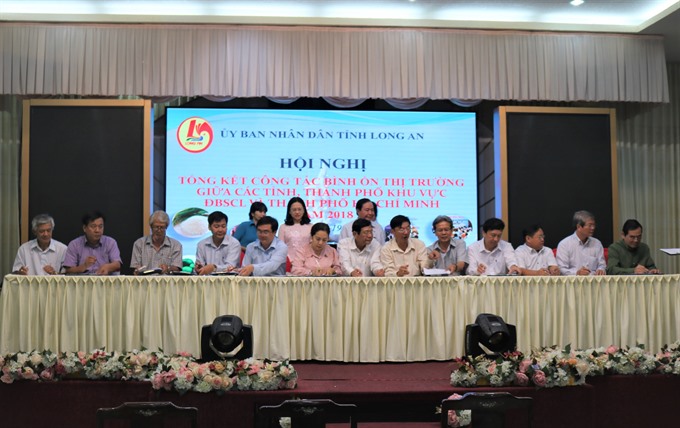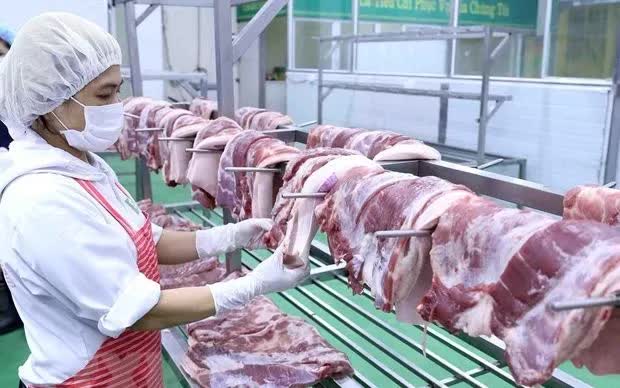 Economy
Economy

The industry and trade departments of HCM City and 13 Cửu Long (Mekong) Delta provinces signed an agreement on Wednesday to extend their market stabilisation programme by another year.
 |
| Industry and trade officials from HCM City and 13 Mekong Delta provinces sign an agreement to extend the market stabilisation programme for another year in Long An on Wednesday. — VNS Photo Hoàng Nguyên |
LONG AN – The industry and trade departments of HCM City and 13 Cửu Long (Mekong) Delta provinces signed an agreement on Wednesday to extend their market stabilisation programme by another year.
The signing took place in Tân An city in Long An Province, where the third Việt Nam Rice Festival is underway.
Nguyễn Văn Được, deputy chairman of the province People’s Committee, said thanks to the programme, prices of goods have remained stable through this year and supply has been sufficient.
“There were no abnormal increases in prices or shortages.”
Besides, conferences bringing together suppliers and buyers of goods were also held last year for them to establish relations, he said.
One of them was a conference between HCM City and localities in the south-east and south-western regions held in Bến Tre last month.
Được said he hoped to organise more conferences in provinces with a large supply of raw materials so that they can sign contracts right away with producers of goods, especially agricultural, like at the previous event in Bến Tre.
According to Long An Province’s report on the 2018 programme, total retail sales in the delta in the first 11 months of the year were worth VNĐ829.72 trillion (US$35.6 billion), a rise of 12.28 per cent.
Reports from other localities show that the programme faces certain challenges like having a small number of enterprises participating, only 70 from the delta and 90 from HCM City.
Besides, the number of outlets in the delta is also small, mainly comprising supermarkets and few traditional markets.
The problem of smuggled and fake products remains widespread, putting pressure on businesses participating in the programme.
Phạm Văn Bé Hai, director of Mộc Hóa Joint Stock Company in Long An, said with the Lunar New Year (Tết) holiday approaching it is the peak time for smuggling in border provinces such as Long An.
He sought the assistance of industry and trade officials in the delta to tackle the issue and educate local consumers about the impact of smuggled products on both users and enterprises.
He said his company has difficulty raising cash to increase stocks during the Tết shopping season.
“Provincial administrations should have a financial assistance programme so that they can ensure adequate supply of goods.”
In response, Lê Thị Mỹ Hiền, deputy director of the State Bank of Việt Nam (SBV)’s Long An office, said banks are now lending to firms at 6.5-7 per cent interest.
But to stockpile goods for Tết, firms should have started months ago and should not wait until December to seek credit from banks especially with most banks having usually achieved their credit growth quotas by then, she said.
“In 2019, the SBV will expand its banks-enterprises link-up programme to enable more firms meet their credit needs.”
Since the programme was started in 2014, the Long An office has recorded loans of more than VNĐ60 trillion ($2.57 billion), she said. — VNS




